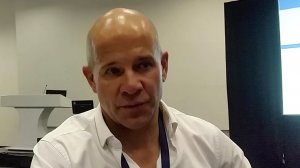JOHANNESBURG (miningweekly.com) – Mining companies need to introduce new ways of thinking about their overall business model to ensure more efficient and successful operations in future, says local enterprise software developer NxGN MD Harry Sinko.
Speaking at the Southern African Institute of Mining and Metallurgy’s Mining for the Future conference, held at the Electra Mining Africa 2016 tradeshow in Johannesburg, on Monday, Sinko said that, traditionally companies have generally focused on intellectual and emotional intelligence. However, he believes there is now a need to apply new forms of intelligence to the business environment, including ‘systems thinking’.
Sinko explained that, as people are primarily driven by what they know, they are unable to think beyond certain parameters, owing to knowledge limitations.
“Mining is a classic case of an industry that has traditionally operated in silos. However, ‘systems thinking’ is focused on collaboration between different people and working units,” he stated.
Sinko further highlighted that industry professionals in the mining sector, such as geologists, engineers and mine managers, have all developed their own codes, which are not easily understood by those outside these circles. He said this was often the result of “egotism” among these professionals, who developed these codes to ensure that it was not easy to transfer information across professional divides.
Conversely, Sinko noted that ‘system thinkers’ look at the broader picture and understand the need to go beyond egotism and silo thinking to work together with others and ensure the best possible result for the organisation.
Another new form of thinking highlighted by Sinko was 'digital intelligence'. He enthused that there was an emerging understanding of this way of thinking.
“However, I do a lot of statistical teaching and training and I come in contact with many university graduates who do not know how to apply what they have learnt, as they do not understand the technological tools that companies are using.”
Sinko added that companies, particularly in the mineral resources sector, had to ensure that new graduates had modern, correctly selected technological tools at their disposal to effectively use the knowledge and skills they had developed, and that they were not frustrated by outdated tools that they are not trained to use.
CORRECT APPLICATION
Sinko stressed that mining companies had to be more cautious about the types of technologies that they introduced to their operations and how they introduced them. “It is not sufficient to just swap an old process with a new, more technologically advanced solution,” he said.
He commented that mines might receive some benefits from this way of operating, such as improved productivity levels, but that this did not lead to “massive improvements” of mine and processing efficiencies.
Instead, Sinko recommended that mines consider undertaking "system modification programmes" to improve the efficiency of their existing processes. He said that this tended to have far more comprehensive operational benefits for a company’s operations.
“Mines worldwide over the past 20 years have tried introducing new technologies and operating models at their operations. However, in many instances, this has not resulted in improved outputs and, in fact, mining production volumes globally generally tend to have decreased during this period,” he pointed out.
Nonetheless, Sinko stressed that that this was not to say that the industry should stop investing in the development of new technologies and mining methods. He said that what was really needed were more sensible investments and greater clarity from mines about how and when they were going to apply new innovations.
Edited by: Samantha Herbst
Creamer Media Deputy Editor
EMAIL THIS ARTICLE SAVE THIS ARTICLE
To subscribe email subscriptions@creamermedia.co.za or click here
To advertise email advertising@creamermedia.co.za or click here












